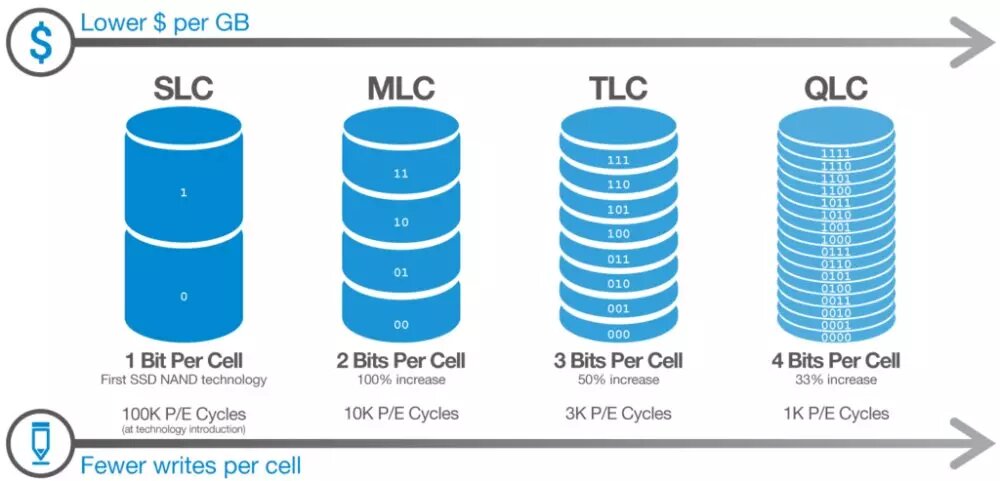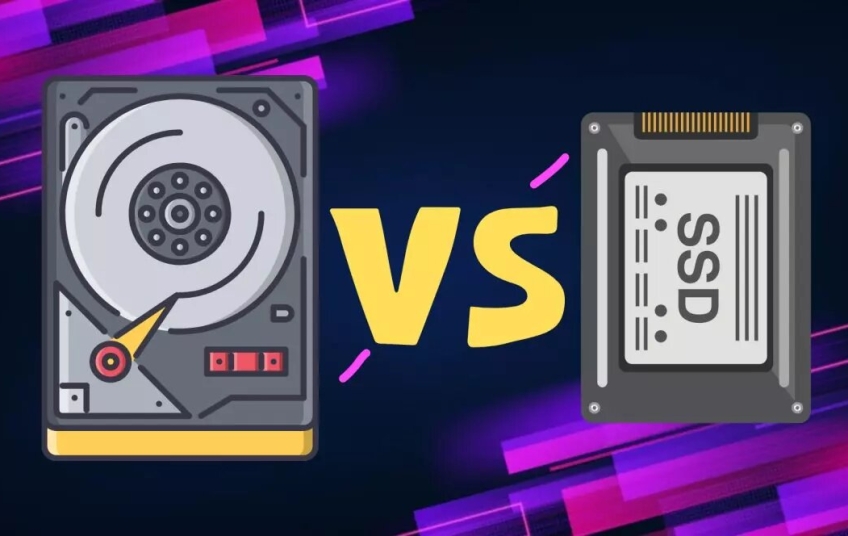You may have wondered why HDDs have more capacity than SSDs. Currently, we can find HDDs up to 18TB, but SSDs are limited to 4TB. Well, the reasons for these capacity limitations in SSDs have a lot to do with their characteristics.
There are several reasons why there is such a difference in capacity, but among the most prominent is the size of the units. We must also bear in mind that HDDs have been on the market for a long time and until recently, the capacity did not exceed 8 TB.
SSDs have two problems: size and technology
We are not going to review all the advantages that SSDs have over HDDs, which they win in almost everything. There is only one thing where an SSD is worse than an HDD: capacity. The big problem with solid state hard drives is that their capacity is less. Even the price of a 1TB SSD can be twice as expensive as an HDD or more.
Well, the part that makes them better than HDDs, such as memory chips, is their big problem. SSD memory chips are limited by manufacturing techniques. The number of layers and the number of bits per cell set the current technical limit for SSD capacity. But it is not the only factor that limits them, since temperature and space are two other factors.

SSDs have significant temperature issues, especially M.2 PCIe drives (those that mount on the motherboard). In addition, this format of these storage units greatly limits the capacity. These two factors prevent us from having higher capacity SSDs, since space is very limited and the more memory chips, the greater cooling problems.
There is more to this. The controllers are another limitation, since in SSDs they must have cell wear, something that does not happen in HDDs. Writing all the time in the same area can excessively wear the SSD and damage it. Actually in the HDD this does not happen, since it is simply written randomly in the blank spaces. What wears out on HDDs is the magnetic read/write arm, and there is no way to correct the problem.
Do these problems have a solution?
Well, in the short and medium term, it seems that there will be no changes. We will see HDDs in the next few years with capacities of more than 18TB, but at the moment SSDs seem stuck at 4TB. While there are manufacturers talking about M.2 up to 8TB, the prices would be ridiculously big.
We must bear in mind that the M.2 formats of the SSDs greatly limit the possibilities. The market is moving towards a "disappearance" of 2.5-inch SSDs with SATA interface, which is totally obsolete. It not only limits the size of these hard drives, but also the important temperature problems, which with PCIe 5.0 will go further.
We could even say that manufacturers work more on improving technology to reduce prices than increasing capacity. In any case, M.2 SSDs, despite having less capacity than HDDs and being technically more expensive, the speeds they offer compensate.





